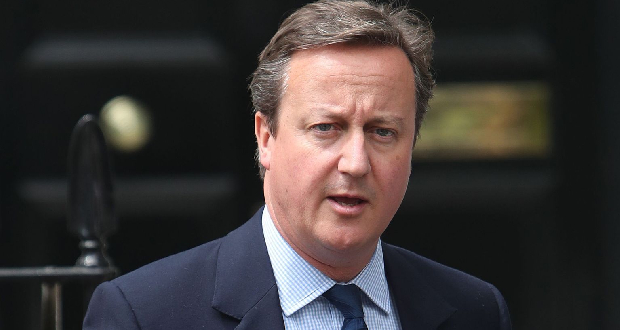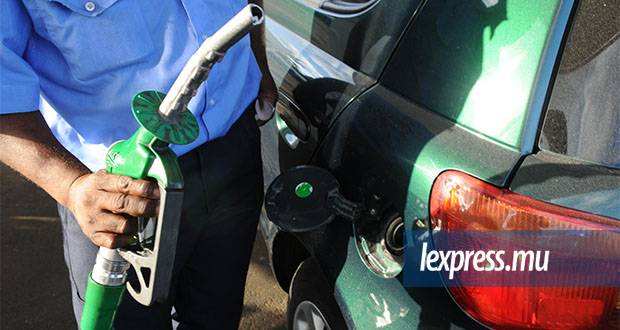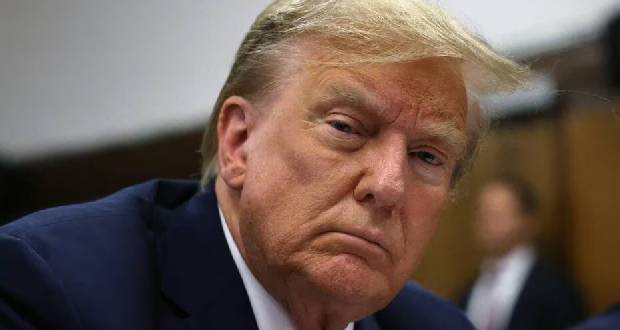Publicité
Mauritius: Not a tax haven but a competitive and attractive cross-border investment platform
Par
Partager cet article
Mauritius: Not a tax haven but a competitive and attractive cross-border investment platform

The debate on the role and contribution of the International Financial Centre (IFC) of Mauritius is spiralling in acrimony unnecessarily. As long as the discussion is evidence-based, facts-driven and issues-embedded, it should be possible to have an informed and a civilised exchange even if there is disagreement on the subject. I honestly see no alternative than to rely on the assessment of global recognised standard-setting institutions to ascertain what Mauritius is and is not.

1.Is the agenda a fig leaf?
Granted some may loathe global business for ideological, ethical and moral reasons, even if it is competitively offered as perfectly legal and wholly legitimate activities in over 60 countries, including developed ones such as the United Kingdom, USA, Ireland, the Netherlands, Luxembourg, Switzerland, Hong Kong, Singapore and Dubai. Granted some may dislike Mauritius engaging in such businesses that represent only 6% of its Gross Domestic Product (GDP) while they account for a staggering percentage of income in small states such as Jersey, Guernsey, British Virgin Islands (BVI), Cayman, Bahamas, Barbados, Bermuda, Malta, and Labuan (Malaysia).
Granted some may have an issue that Mauritius is the preferred jurisdiction in Africa for ALL development finance institutions (DFIs such as IFC and the African Development Bank), many global corporates and private equity funds that invest on the continent ahead of South Africa, Morocco and Botswana while neither Kenya nor Ghana nor Nigeria has been able to start such activities in spite of attempts to burnish their appeal. Granted investors try to gain a comparative tax advantage even if tax is not the only motivating factor as other considerations such as the absence of foreign exchange control, the ease of doing business, the enabling legal and regulatory environment, the rule of law, political and economic stability, the safety and security of Mauritius, its human capital skills set and the quality of services also dictate the choice of location.
Granted investments into Africa are channelled through Mauritius. Even if Mauritius were not there, some of those investments would have either not been done or would have gone through competing jurisdictions such as Dubai, Luxembourg, UK, Singapore and the Netherlands. After all, Singapore has displaced Mauritius as the main source of investment into India and India itself is now trying to build its own financial centre in Gujarat to compete with Singapore, Mauritius and Dubai. Granted Mauritius gains from these offshore activities even if there are also benefits to destination countries in terms of foreign direct, private equity and portfolio investments, infrastructure development, productive capacity, jobs, technology, skills and downstream tax revenues.
While Mauritius is certainly not perfect and there is clearly room for improvement (like in all financial centres), it is blatantly wrong, flatly erroneous and definitionally incorrect to characterise Mauritius as a tax haven. It is a plain distortion of facts, a simple case of mistaken identity. It shows an utter lack of understanding of how global business works and functions in a hotly competitive sector, with over 60 countries vying furiously for crossborder investments and trade.
2. The vigorous vindication of the three very revealing disclaimers of the ICIJ
The International Consortium of Investigative Journalists (ICIJ) is at it again in its intent to portray Mauritius as a tax haven. It made some unfounded allegations in 2017, in the wake of the ‘Paradise Papers’, when Mauritius was falsely described as a tax haven with an environment of secrecy. Last week, the Washington-based outfit released the Mauritius Leaks, which purported to stain the reputation of Mauritius as a credible international financial centre.
However, the ICIJ has been extremely candid to admit that:
i) Offshore companies and trusts have legitimate uses;
ii) It is not suggesting or implying that companies and people using the Mauritius jurisdiction have broken the law. There are thus no illegal activities being carried out;
iii) Mauritius-resident entities are not acting improperly.
These three robust disclaimers have led many people to wonder where the problems are if the activities are by the very admission of the investigative journalists legal, legitimate and not improper. Unfortunately in the process, the ICIJ has caused prejudice to the repute of Mauritius and damaged its image and integrity as a credible financial centre. The country has expended considerable time, money and effort over more than 25 years to slowly and patiently build a key pillar of the economy. Yet the damage that could be inflicted by the unfounded allegations of ICIJ could be so enormous as to potentially affect the sustainability of the sector.
In a globally connected and digital era, such malicious accusations have been given very wide circulation and questions are being asked by many corporates and institutions that use our financial centre for their legitimate businesses. It takes a very long time to build an image, a brand and a reputation. It requires an irresponsible act to cause incalculable harm.
Especially as the allegations are neither warranted nor substantiated. And at a time when the country has implemented new and path breaking changes in the tax regimes to make them compliant with the Organisation for Economic Co-operation and Development’s (OECD) Base Erosion and Profit Shifting (BEPS) initiative on countering harmful tax practices more effectively while taking into account transparency and exchange of information and introducing new economic substance requirements.
3. Surely, 3% corporate tax must be higher than zero tax!
All 60 or so countries that compete fiercely for a slice of the cake have to create a conducive and an enabling investment environment to attract business. Many jurisdictions levy a zero corporate tax (UAE, Jersey, Bahamas, Barbados, BVI, Monaco, Cayman Islands, Seychelles, Morocco, Vanuatu, Panama, Belize to name but a few) to be both competitive and attractive in global business. Mauritius grants a partial exemption of 80% on a corporate tax of 15% (yielding a maximum effective tax rate of 3%) on SOME specific activities in global business.
The argument that Mauritius aids and abets corporates to avoid tax does not stand the test of empirical evidence as there are many other jurisdictions that offer zero taxes and compete to lure cross-border investment. For instance, many Chinese companies investing in Africa use BVI and Cayman islands to domicile their entities.
The ICIJ also argues that Mauritius leaches Africa’s tax revenue even if the share of Africa- related activities in the global business sector is probably no more than 1.5% of our GDP currently. We have always created a conducive climate to encourage investment and the signing of double taxation treaties is one of the crucial components in that strategy. All countries from India to Singapore, from the UK to the USA, from South Africa to Senegal do it and for exactly the purpose of promoting trade and investment. All of them try their best to maximise the allocation of taxing rights in their favour.
Senegal, for instance, has similar, if not identical treaties, with other countries including Luxembourg, UK and Qatar which are much richer than Mauritius in terms of GDP per capita. Had it not been for using the Mauritius platform, investors would have gone to other tax neutral platforms. Similar to the competition between Mauritius and Singapore for investment into India.
The allegations of conduit and shell companies are monstrously inaccurate. Global Business directly employs 15 000 people and many more in an indirect, induced and catalytic manner. There are many physical offices (the whole of Cybercity is essentially for that purpose) and annual operating expenditures and tax intake are very high, much more than manufacturing, agriculture, tourism and ICT/BPO.
4. Companies do pay corporate taxes in African countries
It is absolutely wrong to argue that companies invest through Mauritius only to avoid payment of taxes in African countries with which we have Double Taxation Avoidance Agreements (DTAA). All businesses that invest in Africa pay taxes locally, irrespective of whether they invest directly or from Mauritius. First, all entities domiciled in Mauritius that invest in mainland Africa must pay corporation tax on profit if they have a permanent establishment there. Second, if dividends are declared, companies would pay the lower of the tax in that country or what is obtained in the treaty.
These companies are entitled to a tax credit in Mauritius on their tax liabilities in the investee country. Third, when assets are disposed of (after a very long time and it is a one off), capital gains are paid either in the source or resident country, depending on whether the DTAA is OECD or United Nations based. Countries that are not happy with the OECD residence based tax on capital gains can change that clause as China, India and South Africa have done with Mauritius.
The four OECD litmus tests not to qualify as a tax haven
The best known definition of a tax haven is probably that used by the OECD. It carries out extensive work on the subject and publishes its own list based on a set of objective and measurable criteria. It also periodically reviews the policies and practices of countries to ascertain their level of compliance with international best standards. It identifies states that do not meet the criteria to be classified as a tax haven.
Four key indicators of tax havens are identified by the OECD:
i) Lack of transparency;
ii) Unwillingness to exchange information with the tax administrations of other countries;
iii) Absence of a requirement for economic substance;
iv) Nil or only nominal taxes.
5. The robust and detailed assessment of the OECD has shown the following:
Mauritius has state of the art legislations that are recognised as transparent by the OECD. The European Union (EU) and the OECD have further concluded that Mauritius has strict legislations to fight money laundering and combat the financing of terrorist activities;
b) Mauritius fully exchanges tax information with competent foreign authorities. The country has signed FATCA (Foreign Account Tax Compliance Act), is an early adopter of CRS (Common Reporting Standard) and has joined the Inclusive Framework of the OECD to implement the BEPS minimum standards and exchange information on an automatic basis;
c) The four tests of substance which are employment, annual operating expenditure, physical office and the core income generating activities being carried out in Mauritius have been introduced to meet the OECD and the EU requirements. This is in addition to the criteria of management and control of the entity being in Mauritius;
d) Mauritius has a headline corporation tax rate of 15%. However, there are few exemptions to that tax rate so as to promote some specific sectors as it exists in most countries in the world. The country grants a partial exemption of 80% to Global Business Companies on some but not all income streams, which makes the effective tax rate at 3%. This is very different from countries with zero taxes across all sectors. And there are many of them!
As per the four tests of the OECD, Mauritius is absolutely not a tax haven.
The Deputy Director of the International Monetary Fund categorically stated that “Mauritius is not a tax haven. It is on the white list of the OECD”. Nor has the EU characterised Mauritius as a tax haven. Nor have other leading globally recognised standard setting institutions such as the World Bank and the Financial Action Task Force labelled Mauritius a tax haven.
They have all defined Mauritius as a credible and secure financial centre of repute that has adopted international best practices in tax matters, regulatory practices, transparency, exchange of information and economic substance.
Publicité
Les plus récents






